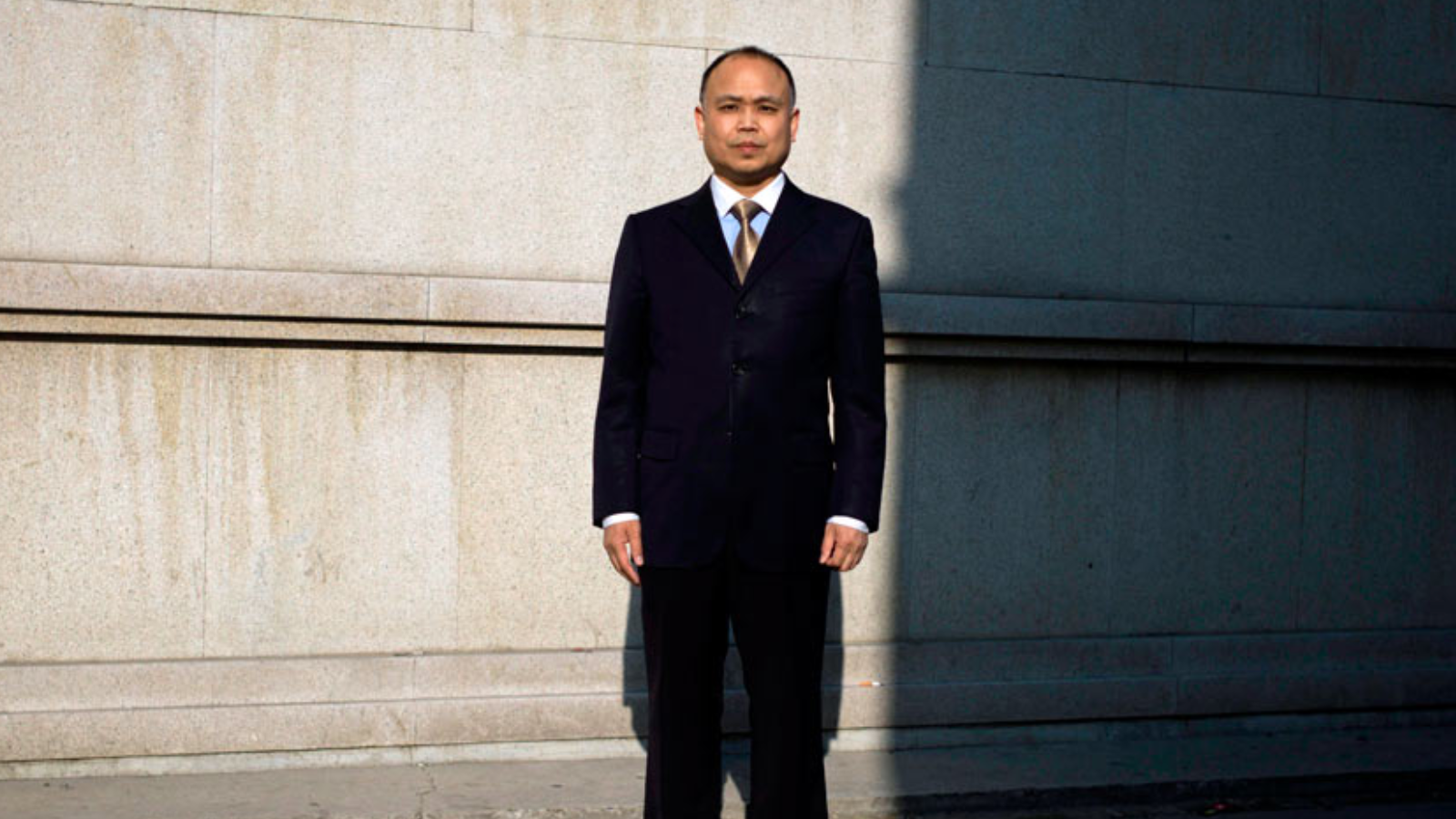China-watching: Why is China so afraid of civil society?

Why does a geopolitical leader, an economic giant, a technological and cultural powerhouse fear human rights defenders to such a degree?
China’s human rights record is so often in the news but many of us do not understand what drives the government´s reticence to civil society. The Martin Ennals Foundation consulted with international organizations, activists, and civil society to answer these questions.
Throughout its 30-year history, the Martin Ennals Award has recognized four exceptionally brave and effective Chinese human rights defenders. However, two of those defenders disappeared or perished in detention; and since April 2023, a third MEA Laureate in China is once again under arrest.
Only thirteen months after completing a four-year prison sentence, human rights lawyer and Martin Ennals Award Laureate 2021, Yu Wensheng, was arrested by Chinese officials on April 14, alongside his wife, Xu Yan.
The couple was detained en route to a meeting with the Ambassador of the European Union in Beijing, on the grounds of “picking quarrels and provoking trouble.”
Yu Wensheng and Xu Yan are leading human rights activists in China, having campaigned for democracy and governmental reform in their country for over a decade. Since leaving his job as a corporate lawyer to work on human rights cases, Yu Wensheng played an important role in defending other human rights lawyers and activists detained by the government. His wife, Xu Yan, became an outspoken human rights activist on the heels of her husband’s first arrest in 2018, speaking publicly about the absence of due process and the rule of law in China. She, too, has faced constant surveillance and harassment by the Chinese authorities.
Following the couple’s arrest, international organizations and civil society decried the Chinese authorities for violating the rights of its citizens and for further suppressing the voices of those that oppose its system of governance. In a joint statement with six other organizations – including Lawyers for Lawyers and Lawyers’ Rights Watch Canada – the Martin Ennals Foundation called for their immediate release and urged EU officials and other governments to speak out about the case, which calls into question whether international dignitaries can meet with local activists at all. Many embassies in Beijing similarly sent formal notes of protest to their Chinese interlocutors. To our knowledge, no official response has come from the Chinese authorities to these efforts.
The state of civil society in China
Experts we spoke with recalled that the crackdown on civil society in China can be traced back to 2015 when over 300 lawyers and activists were detained, interrogated, and arrested in what was referred to as the “709 crackdown”. Many of the dissidents who were imprisoned in 2015 for publicly opposing the government’s rule and who advocated for legal reform, continue to serve time behind bars. Moreover, in 2016, a Foreign NGO Law was adopted which prohibited NGOs from carrying out activities that could be interpreted as “endangering national unity, national security or ethnic unity or harming China’s national interests and societal public interests.” United Nations experts describe this law as a tool to suppress the work of civil society organizations. “Efforts designed to deter human rights defenders from conducting their work have a chilling effect on civil society,” a source from a consulted organization said.
Many international organizations and human rights defenders have noted that Yu and Xu’s arrest is indicative of the dissolution of civil society in China. Four days before Xu and Yu were intercepted on their way to a meeting with the EU delegation, Xu Zhiyong, a legal scholar, and Ding Jiaxi, a human rights lawyer, were given prison sentences of 14 and 12 years respectively for “subversion of state power.” On the same day that Yu and Xu were detained, prominent human rights lawyers Wang Quanzhang, Wang Yu, and Bao Longjun were all ordered under house arrest.
What can be done?
Diplomats and civil society advocates admit that Chinese indifference to international pressure or ‘stone-walling’ on individual cases of detained HRDs can be discouraging. Or misleading. China will give the impression that they are not perturbed by protests from international actors – but experience shows that they are. The strong reaction of the Chinese diplomatic mission in Geneva to the OHCHR’s report on human rights violations in Xinjiang, published by the former High Commissioner for Human Rights Michele Bachelet on the eve of her departure from the role in 2022, is a case in point.
Diplomats we consulted believe it is of utmost importance to provide ample opportunities for China to make the right decisions when it comes to human rights. The more China is allowed to act in a positive manner, the greater the likelihood of achieving favorable outcomes for detained human rights defenders. Sources to this article highlighted that, in some cases, it can be useful to adopt a track-two approach, avoiding the public cornering of China, which in their view reduces the possibilities to create constructive engagement and cooperation on human rights.
This private approach is controversial, however. Observers of Chinese policy suggest that collaborative advocacy and international pressure play an important role in strengthening the resolve of activists. “A lot of the campaigning taking place keeps human rights defenders going,” a source from an international organization said. “It sustains their advocacy.” Another consulted source concurred with this comment. “International support, campaigning, and visibility help the moral resilience of defenders. It significantly contributes to their willingness to continue their work.”
In May, a family member of Yu and Xu was officially notified of the couple’s arrest. As the 53rd Session of the UN Human Rights Council reaches the mid-way point, the well-being and whereabouts of the couple, and their fellow human rights activists, remain unclear.

